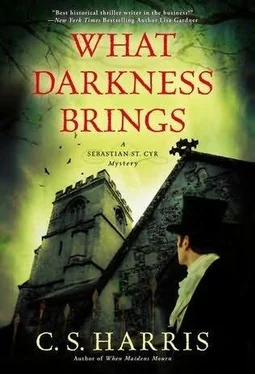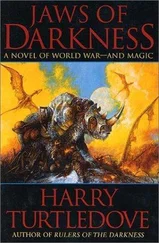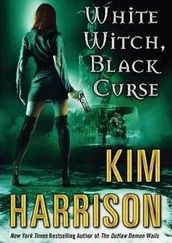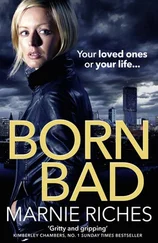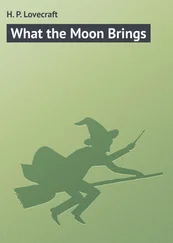C. Harris - What Darkness Brings
Здесь есть возможность читать онлайн «C. Harris - What Darkness Brings» весь текст электронной книги совершенно бесплатно (целиком полную версию без сокращений). В некоторых случаях можно слушать аудио, скачать через торрент в формате fb2 и присутствует краткое содержание. Жанр: Исторический детектив, на английском языке. Описание произведения, (предисловие) а так же отзывы посетителей доступны на портале библиотеки ЛибКат.
- Название:What Darkness Brings
- Автор:
- Жанр:
- Год:неизвестен
- ISBN:нет данных
- Рейтинг книги:3 / 5. Голосов: 1
-
Избранное:Добавить в избранное
- Отзывы:
-
Ваша оценка:
- 60
- 1
- 2
- 3
- 4
- 5
What Darkness Brings: краткое содержание, описание и аннотация
Предлагаем к чтению аннотацию, описание, краткое содержание или предисловие (зависит от того, что написал сам автор книги «What Darkness Brings»). Если вы не нашли необходимую информацию о книге — напишите в комментариях, мы постараемся отыскать её.
What Darkness Brings — читать онлайн бесплатно полную книгу (весь текст) целиком
Ниже представлен текст книги, разбитый по страницам. Система сохранения места последней прочитанной страницы, позволяет с удобством читать онлайн бесплатно книгу «What Darkness Brings», без необходимости каждый раз заново искать на чём Вы остановились. Поставьте закладку, и сможете в любой момент перейти на страницу, на которой закончили чтение.
Интервал:
Закладка:
“Yesterday I only took in tuppence ha’penny, it was so dry. Dry days is always the worst. We likes it when it rains-particul’rly a hard wettin’ what makes lots o’ mud but then clears up, so that folks come out again. On a good day, I can make as much as tenpence. But the brooms wear out faster when it’s muddy. A broom costs tuppence ha’penny, and it’ll only last four or five days in wet weather, where’s I can get a fortnight out o’ one if things is dry.”
Hero glanced down at the boy’s broom, which was basically a bundle of twigs lashed to a stout stick. He might lack an understanding of the concept of averaging, but he obviously had a solid grasp of the economics of his business-and the forethought to forgo lodgings on an autumn night in order to save for the boots he knew he’d be needing in the coming winter.
“What hours do you normally work?”
“The take is best here between nine and seven, although I know some lads what work Mayfair, and they don’t usually start till noon or even one, when the nobs come out. I wish I could get in with them,” Drummer added wistfully. “They can take as much as a shilling a day, only their spots is all full up right now. But I goes with them at night to the opera and tumbles.”
“You tumble?”
“Aye. We do cat’un-wheels and flips, and the gentlemen comin’ out o’ the opera’ll laugh and give us a few pence, especially if they’ve a girl on their arm. There’s one boy by the name o’ Louis who gets e’en more tin give him, on account of he can do backflips. Me, I ain’t so good even at the cat’un wheels. I get giddy after jist two or three.”
“So you don’t go to sleep until after the opera lets out?”
“Oh, no, m’lady. Then we goes to the Haymarket-’cept on Sundays, when we goes there earlier.”
“What do you do there?” Hero asked. An ancient thoroughfare running from Piccadilly to Pall Mall, the Haymarket was crowded with theaters, hotels, supper houses-and prostitutes.
“Well, sometimes a gentleman’ll drive up in a carriage and tell us to bring him a girl. We can get as much as five or sixpence for that. If the gentleman is dressed nice, we’ll fetch him a real pretty girl.”
Hero stared at the guileless young pimp before her in horrified fascination. “And if he’s not ‘dressed nice’?”
The boy grinned. “Well, then we’ll fetch him one o’ the girls what ain’t so young and pretty. But sometimes, we gives the best chances to girls what’ve been kind to us. Sometimes a girl’ll go by and we’ll shout out, ‘Good luck to you!’ and she’ll give us a copper.”
“These girls whom you, um”-Hero hesitated, searching for an appropriate word-“supply,” she said finally, “do you find them walking in the street?”
“Sometimes. But if we don’t find any girls walking, we know what lodging houses to go to, to get ’em. And the next day, they’ll usually give us a copper or two, by way o’ thanks.”
“So at what time do you finally quit working?”
“We all meets at three o’clock, on the steps o’ St. Anne’s, and reckon up what we’ve taken.”
Good heavens, thought Hero; the child worked from nine in the morning to three the next day. She said, “And then you come here to sleep?”
“Aye. Although I gots to move when the sun comes up.” The fatigue that shadowed the boy’s eyes and sagged his jaw was obvious. “I’ll be glad when I saves up enough to buy them boots. Last night was nippy.”
Hero pressed a coin into the sweeper’s palm and closed his fist around it. “Here’s a guinea for you, my little man. Thank you for agreeing to talk to me.”
Then she turned and walked rapidly back to her carriage, before she was tempted to empty her purse into his thin, grubby hands.
Chapter 8
Squashed between a grimy brick warehouse and a chandler’s shop, the dilapidated home of Daniel Eisler lay on a narrow, crooked street called Fountain Lane, just off the Minories. Built of dressed sandstone blocks darkened and crumbling with age, the house looked as if it might once have been surrounded by extensive gardens. Now rampant ivy covered its gabled end, while rusty iron bars disfigured the mullioned windows.
St. Botolph-Aldgate was a long, narrow parish that stretched all the way from the Thames up to Aldgate High Street, so that it actually straddled the boundary between the City of London and Middlesex. Dominated by the vast presence of the East India Company, it was mainly given over to gunsmiths and the various maritime trades, especially slaughterhouses and breweries. And here, in the narrow lanes off the Minories, had settled a number of refugees from the Netherlands and the various German states.
Pausing on the flagway opposite the old house, Sebastian let his gaze travel over the sagging eaves, the dusty broken glass of an attic window. He was close enough to the river that he could smell the scent of tar and brine and dead fish, hear the dull roar from the seamen and dockworkers who crowded the taverns and ale shops along Whitechapel to the east. But here, the cobbled street was quiet, with many of the old shops and houses being replaced by warehouses. At eight or nine in the evening-the time of Eisler’s death-the lane would probably have been deserted.
A man pushing a cart piled high with scrap iron cast him a curious look but kept going. Stepping wide to avoid a gutter clogged with sodden refuse, Sebastian crossed the street to rap sharply on the house’s worn but stout front door. He had to bang the knocker twice more before the door swung inward less than a foot, then stopped.
An old man’s pale, gaunt face appeared in the crack. Thin tufts of soft gray hair stuck out at odd angles from a narrow, bony head; his cheeks were sunken, his skin yellow and wrinkled with age, his black butler’s coat rusty and threadbare and too large for his shrunken frame. He blinked several times, as if disconcerted by the overcast day’s flat white light. “If you are looking for Mr. Eisler,” he said in a thin, quavering voice, “I regret to inform you that he is not at home. In point of fact, he is dead.”
He made as if to shut the door.
Sebastian deftly inserted one boot in the opening, stopping him. “Actually, you’re the one to whom I wished to speak. I take it you’re Mr. Eisler’s butler-Campbell, isn’t it?”
The aged retainer dropped his gaze to Sebastian’s foot, then looked up again. “You’re not from Bow Street, are you? Because Mr. Leigh-Jones said we wasn’t to speak to anyone from Bow Street.”
“Mr. Leigh-Jones?”
“The chief magistrate at Lambeth Street. Called us all down to the public office as witnesses, he did, late last night when he committed that Yates fellow to Newgate to stand trial for murder. Mr. Leigh-Jones warned us most particularly not to go blabbing to anyone from Bow Street.”
Bow Street had been the first of the public offices formed, and still retained an exalted position that gave it authority over crimes and criminals not just in the metropolis but in all of England. It wasn’t unusual for magistrates from the lesser public offices to resent the prominence of Bow Street and seek to forestall any possible interference in their districts.
Sebastian said, “Do I look like a Bow Street runner?”
Campbell studied Sebastian’s exquisitely tailored coat and flawlessly tied cravat, his doeskin breeches and polished Hessians. “You don’t, no. But you could be one of those fellows from the newspaper offices. Mr. Leigh-Jones also directed us most particularly not to be talking to any of them either.”
Sebastian extracted a card from his case and held it out between two fingers. “I am Devlin. I trust Mr. Leigh-Jones didn’t direct you not to speak to me?”
Читать дальшеИнтервал:
Закладка:
Похожие книги на «What Darkness Brings»
Представляем Вашему вниманию похожие книги на «What Darkness Brings» списком для выбора. Мы отобрали схожую по названию и смыслу литературу в надежде предоставить читателям больше вариантов отыскать новые, интересные, ещё непрочитанные произведения.
Обсуждение, отзывы о книге «What Darkness Brings» и просто собственные мнения читателей. Оставьте ваши комментарии, напишите, что Вы думаете о произведении, его смысле или главных героях. Укажите что конкретно понравилось, а что нет, и почему Вы так считаете.
